Philippines
Multi-dimensional Country Reviews - Countries undertaking review
About |
Pioneered in Myanmar, the Philippines and Uruguay, Multi-dimensional Reviews (MDCRs) are being incorporated in some OECD country programmes and several countries are about to start the review process:
|
|
|
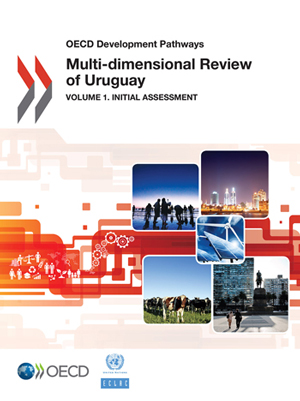 |
Multi-dimensional Review of Uruguay - Vol. 1. Initial Assessment Uruguay has made remarkable progress over the past decade. Stable macroeconomic policies and a favourable external environment have permitted brisk growth and the financing of social policies. Substantial improvements in several dimensions of human well-being have occurred during this period, alongside considerable reductions in external risks. The conditions ahead, however, may present challenges to maintaining performance. Overcoming these challenges will require finding the appropriate balance between long run objectives and macroeconomic and fiscal stability. One of the main obstacles to economic growth is the insufficient and inadequate provision of human capital and skills. A number of challenges remain for education, which, together with fiscal policy, are key means of reducing inequalities and sustaining economic growth. In addition, Uruguay needs to address labour shortages to avoid constraints on future growth, especially as exports become more skills-intensive. It is important to orient social policies and expenditures towards the most vulnerable groups.
Read the full publication Executive Summary |
|
|
|
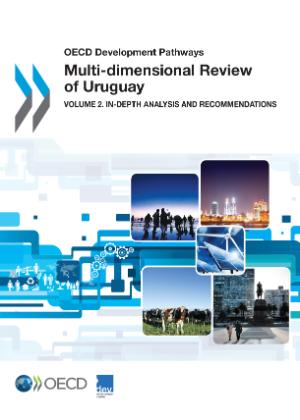 |
Multi-dimensional Review of Uruguay - Vol. 2. In-depth Analysis and Recommendations Read the full publication Chapter 1. Assessment and recommendations
Press release: International integration, infrastructure and investment in education are the priorities for Uruguay, according to the OECD Multi-dimensional Review (Also available en Español) |
|
|
|
|
|
Multi-dimensional Review of Côte d'Ivoire - Vol. 1 -Initial Assessment (In French)
Read the full publication (in French) |
|
|
|
|
|
Press Release - Côte d’Ivoire working to become an emergent economy by 2020, with the help of the OECD’s Multi-dimensional Country Review (Also available in French) |
|
|
|
 |
Multi-dimensional Review of Côte d'Ivoire - Vol. 3 - From Analysis to Action (English and French) Press Release - Côte d’Ivoire working to become an emergent economy by 2020, with the help of the OECD’s Multi-dimensional Country Review (Also available in French)zzz |
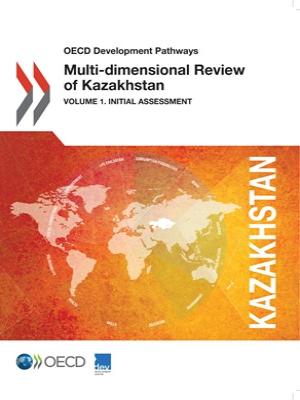 |
Multi-dimensional Review of Kazakhstan - Vol. 1 - Initial Assessment Kazakhstan’s economy and society have undergone deep transformations since the country declared independence in 1991. Kazakhstan’s growth performance since 2000 has been impressive, averaging almost 8% per annum in real terms and leading to job creation and progress in the well-being of its citizens. Extractive industries play an important role in the dynamism of the economy, but sources of growth beyond natural resource sectors remain underexploited. In the social arena, dimensions of well-being beyond incomes and jobs have not kept pace with economic growth.
Chapter 1. Overview: Realising Kazakhstan’s development vision
|
|
|
|
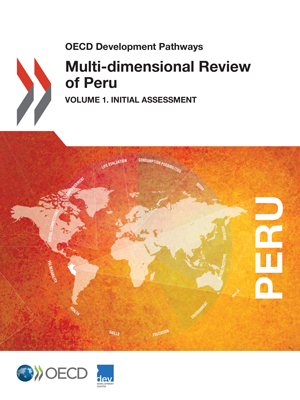 |
Multi-dimensional Review of Peru - Vol. 1 - Initial Assessment Peru has experienced significant improvements in growth, well-being and poverty reduction since the introduction of macroeconomic reforms, economic openness and more effective social programmes in the 1990s. However, the country still faces structural challenges to escape the middle-income trap and consolidate its emerging middle class. This report reviews the main bottlenecks to boost inclusive development and well-being in Peru. These include education and skills, the labour market, innovation, transport infrastructure and logistics, governance and trust in institutions. These dimensions have considerable implications for levels of productivity, inequalities and labour informality in Peru.
Read the full publication /la publicación completa
Press release: in English (Also available in español / français)
|
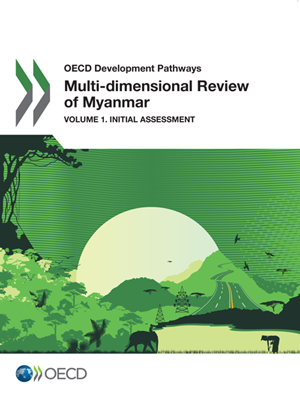 |
Multi-dimensional Review of Myanmar - Vol. 1 - Initial Assessment Myanmar’s success in achieving stable and sustainable growth will depend vitally on its ability to develop the institutional and social capital necessary to maintain macroeconomic and financial stability, to ensure the rule of law, to achieve environmentally sustainable development and to create an enabling environment for the private sector. To be sustainable, growth also needs to be more equitable and inclusive. Seizing the momentum created by the country’s opening and internal peace process will be imperative. Moreover, Myanmar’s increasing population provides a demographic dividend which needs to be reaped in the next couple of decades to boost the potential of the economy. After that, the population will begin ageing and Myanmar risks getting old before the incomes and living standards of its people can significantly improve. Read the full publication Chapter 1. Myanmar at a crossroad Chapter 2. Achieving stable and sustainable development Chapter 3. For more inclusive growth and equitable opportunities The way ahead for Myanmar
Press release : Getting Rich before Growing Old: Jump-starting development in Myanmar ahead of population ageing, says OECD report |
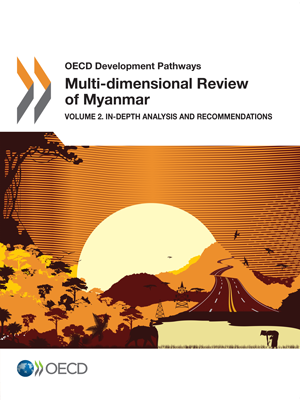 |
Multi-dimensional Review of Myanmar - Vol. 2 - In-depth Analysis and Policy Recommendations Building on an initial assessment of constraints to development in Myanmar (Volume 1), this second volume provides analysis and policy recommendations in three key areas: structural transformation, education and skills, and financing development. Read the full publication / in Burmese Pocket Edition : English / Burmese Chapter 1. Assessment and recommendations Chapter 2. Structural transformation towards a modern economy: Upgrading agriculture, manufacturing and services Chapter 3. Filling the skills gap in Myanmar Chapter 4. Providing the financial resources to support development
|
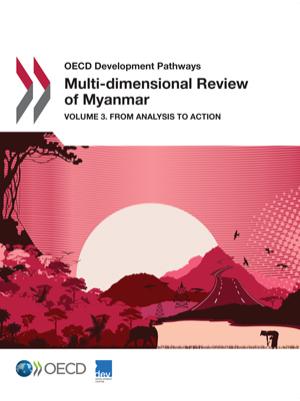 |
Multi-dimensional Review of Myanmar - Vol. 3 - From Analysis to Action Myanmar is in need of a structural transformation from an agrarian economy to one based more on a mix of modern activities, including manufacturing and services. Modernising the agricultural sector by building linkages to complementary non-agricultural activities – an “agricultural value chain” approach – could set in motion this process of structural transformation. Furthermore, given Myanmar’s level of economic development, its large rural population and the weight of agriculture in the economy, a development strategy that puts agriculture and rural development at its core has the potential to make a significant positive impact for millions. This third report of the Multi-dimensional Review of Myanmar synthesises the findings and recommendations from the first two reports according to the following priorities as defined by stakeholders in Myanmar: supporting the agri-food sector’s ability to respond to market demand for quality products; introducing innovative models of delivering extension services and training to upgrade agronomic and technical skills; providing the conditions for a vibrant financial system that meet the needs of rural areas; strengthening land rights; engaging citizens in the policy making process; and managing and maximising the benefits of emigration from rural areas. Press Release: Agriculture offers great opportunities to drive development of Myanmar economy, says new OECD Development Centre report |
| Philippines - forthcoming | Multi-dimensional Review of the Philippines - forthcoming |
For more information:
Related Documents

